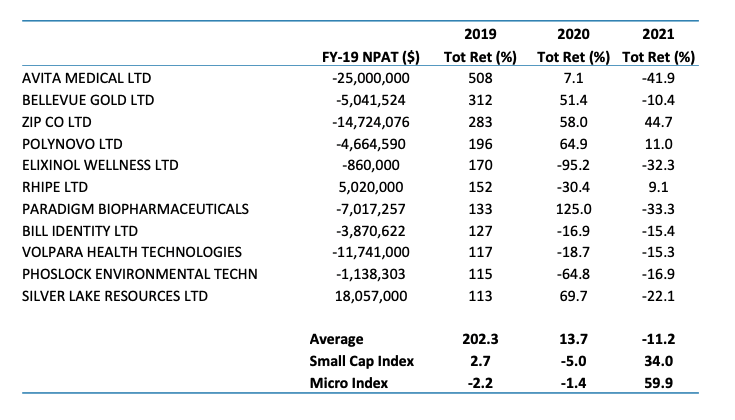Winning portfolio strategies for the road ahead
From dodging growth traps in global markets to navigating the maze of global small and micro-caps and hunting down defensive property assets, top stock-pickers from several asset classes recently fronted the Pinnacle Investment Summit 2021.
After an intense and enlightening morning session focusing on Aussie equities, the following fundies featured in the afternoon lineup, discussing, among other things, fresh portfolio strategies for the road ahead:
- Jacob Mitchell, CIO and lead portfolio manager, Antipodes Partners
- Marcus Burns, portfolio manager, Spheria Asset Management
- Andrew Parsons, CIO, Resolution Capital
- Amberjit Endow, technology and platforms leader, Sayers Group
In the wire below I'll summarise the key takeaways from a fascinating session.
US dominates global macro

Canvassing global macro, Jacob Mitchell kicked off by addressing the sheer dominance of US stocks, which currently comprise almost 60% of the MSCI All-Countries Weighted Index. They’re also priced far more richly than most other markets, trading at an estimated 65% premium to the rest of the world. Questioning whether this is justified by the earnings growth they generate, he suggested it probably isn’t.
“In the last 10 years, the US has grown slightly faster, but you could argue this was supported by the Trump era tax cuts and then the out-sized COVID stimulus,” Mitchell said.
One might also argue that US stock valuations have been inflated in recent years by the market’s large number of “mega-cap tech growth stocks.”
“We do expect those companies to grow. But that's not where we see most of the overvaluation, because it’s actually quite broad in the US,” Mitchell said.
The question of inflation underpinned the session. Mitchell said he expects this won’t peak until late 2022, particularly in the US, without necessarily seeing this as a prolonged rise. But over the next 12 to 18 months, he expects the combination of ongoing loose monetary and fiscal policy to keep consumption ticking along, which in turn should keep inflation elevated.

“If you think that the income stimulus ultimately transitions to a sustainable rebound in the economy and a capital spending cycle, we think we're in relatively good shape for an ongoing rotation out of very high-multiple stocks into those with lower multiples,” Mitchell said.
“Some of the record highs in price-to-earnings ratios should start to compress. We’re not claiming that will necessarily be smooth, but we think it will happen.”
He believes three key areas should benefit from this, including:
- The decarbonisation thematic, which is the biggest of the three and will be most pronounced in Asia and Europe: “That ends up being a super-cycle in investment.”
- Cloud computing, 5G networks, Internet of Things
-
Hard asset infrastructure, again this will be more pronounced in Asia and Europe but will also play out in the US.
Some of the companies Antipodes is backing to capture these themes include German automation and digitalisation firm Siemens AG and hardware supplier Lowe’s, which should benefit from anticipated ongoing growth in US housing.
Another potential new supercycle?
And related to these themes, Mitchell also called out a “mini supercycle in new car demand,” given the supply shortages seen during peak COVID.
This underpins Antipodes’ holdings of Toyota and also semiconductor manufacturers TSMC and Samsung.
Financials are another way his team is playing the “reopening,” preferring European and Asian banks and payment firms.
“The valuations are more attractive. And because those parts of the world have lagged the US in terms of vaccine adoption, we think there's a very good catch-up cycle coming,” said Mitchell.
He’s also keeping an eye on risk, some of which is mitigated through the fund’s ability to take short positions in weaker businesses that have little margin of safety.
Are you a “red pill” or “blue pill” investor?

Shifting from global large-caps into small caps, Spheria's Marcus Burns was on hand to discuss the mispricing opportunities he believes are being presented by the rapid growth in retail investing - particularly at the more speculative end of the market.
He framed his presentation using story elements from The Matrix, a popular science fiction movie released in 1999. The film is set in a dystopian futuristic world, where artificial intelligence has taken over and humans are little more than batteries to feed an almost infinite AI machine.
“The AI had created a ‘matrix’ that fooled humans into thinking they were actually living real lives, and we think that what we’re seeing today in the market is a very apt parallel with that,” said Burns.
He highlighted a few key drivers of this phenomenon in markets:
- "Rise of the machines” – referring to the increasing uptake of passive investing via exchange-traded funds and other listed vehicles
-
An undisputed belief in “iZirp” – “infinite zero interest rate policy
- Retail investing platforms – such as Superhero in Australia and Robinhood in the US.
Burns suggested many of the investors who have jumped on the bandwagon of these platforms, also driven by forums such as Reddit, are “trying to smoke out shorts in the marketplace, with many non-fundamental things driving share prices.”
Again, borrowing from The Matrix’s script, Burns groups this cohort as those who have embraced “blue pill thinking”. In the film, characters who choose the blue pill opt to remain unenlightened about the true nature of their world, while those who swallow the red are awakened and unplug from the slavish system.
“Blue pill thinking is the investing approach that’s become common today of buying disruptor stocks, things with big buzzwords that sound like hot, attractive areas,” Burns said.
“But just jumping onto those trends without doing your work and doing business research and analysis will ultimately not lead to higher returns. There's very little application in blue pill thinking of long-term business economics of industry analysis.”
To demonstrate his point, Burns pointed to the 2021 performance of some top microcap names versus their returns in the prior two years. In fiscal 2019, the 10 stocks delivered an average return of 202%, a figure that fell to -11.2% in the financial year just ended - as shown below.
Economic gravity weighs on loss-making companies

Source: Bloomberg data, Morgan Stanley research
“Only one of those 10 made money in FY21, despite the stellar returns of FY19.
“In 2021, two years after they were top 10 stocks, they got absolutely destroyed by the market. So over time, gravity weighs and loss-making stocks don't perform very well.
He also stretched this comparison further back over six or seven years and found the story was largely unchanged.
The "red pill" stock that ticks Spheria’s boxes
On a bigger-picture scale, Burns believes the fixation with “iZirp” – a belief that the current low-interest rates around the world are a long-term shift – is also being embraced by more speculative investors.
Central banks right now are stimulating incredible amounts of investment by companies and economic recovery worldwide, which is generating inflation that is incompatible with long-term interest rates being zero.
One stock that ticks the boxes of Spheria’s “red pill thinking” approach based on fundamental research is Universal Store (ASX: UNI), which was listed in late 2020.
An “omnichannel” retailer (physical stores and an expanding online shopfront), Burns described it as “an on-trend retailer for millennials and Gen Z consumers … a good business with a sound business model”.
With 66 stores currently and a target of more than 100 in Australia, he believes Universal has four or five years of double-digit growth ahead, also pointing out its history of like-for-like sales growth.
“And you get all that for about 10 times EBIT looking one year forward, which we think represents outstanding value on top of the fact that it's fundamentally a cracking business.”
The REIT stuff: A robust defensive approach

And in the “alternatives” space, for investors with a more defensive bent, Resolution Capital’s CIO Andrew Parsons discussed the outlook for global real estate investment trusts (REITs). He’s positive on REITs for three core reasons:
- Robust tenant demand recovery/supply bottlenecks
- Healthy balance sheets
- M&A appeal

Parsons believes the sector is well-positioned because of its moderate levels of debt versus historical comparisons and is also buoyed by management teams that are resisting the urge to pay out excessive distributions.
“With these attractive features, we’re starting to see some very significant levels of M&A within the REIT space, not just mergers between REITs but also ‘take privates' driven by private equity players such as Blackstone,” he said.
Some of the key themes reflected in the assets in his portfolio are:
- E-commerce: Logistics, select Retail
- Digitisation: Data Centres, Cell Towers
- Ageing population: Senior Housing/Life Science
- Housing shortage: Rental homes/apartments, MHC’s
Residential property currently comprises around 25% of the portfolio currently, a mix of apartments, freestanding homes, student housing and manufactured home communities (such as retirement villages) in various international markets.
“We’re seeing extremely strong rental growth in most parts of these markets,” said Parsons.
Among recent additions to the portfolio in recent months are Rexford Industrial, an NYSE-listed industrial real estate firm, and US-based global timberland and forestry company Rayonier.
The first is enjoying strong rental growth and earnings increases, tipped to rise more than 10% over the next one to two years. The second, Rayonier – which owns timberlands in the US and New Zealand, is benefiting from strong demand for lumber building materials for use in commercial construction.
Commenting on the macro environment, Parsons noted the extraordinary levels of involvement by central banks and governments. He expects inflationary pressure to see a lift in interest rates in the next two to three years.
“Rental growth across a broad range of residential REITs in the US is starting to have a very significant uptick. From around 2% in the June quarter, in July it’s moved into double-digit. We think that will put further pressure on inflation in the back half of 2021,” he said.
“That’s vital to understanding the dynamics of REITs and their ability to capture rent increases and income growth to offset the effects of inflation.”
Follow the VC dollars

Sayers Group’s Amberjit Endow opened his presentation with the prediction that a staggering US$3.9 trillion will be invested in artificial intelligence by 2022, based on research from Gartner Group. Almost half of this is expected to come from countries in the Asia Pacific region.
“We always follow the venture capital dollars to gauge how a market segment is performing, and since 2013, US$26 billion has been invested in AI startups, a number that has grown even more dramatically since the onset of the pandemic,” Endow said.
He groups AI into three key areas:
- Assisted – robotic process automation and machine learning.
- Augmented – sentiment analysis and intelligent automation.
- Autonomous – blockchain, decision intelligence and artificial general intelligence.
For all the opportunities these technologies present, Endow also cautioned against something termed “the hype cycle”.
“The majority are still riding the ‘expectation’ high. In the coming months or possibly a year or two, you’ll see these technologies drop into the trough of ‘disillusionment’ for a while,” he said.
At that point, additional investment and exploration of how to industrialise these technologies is needed before they gradually become fully productive and embedded in business processes. But Endow emphasises the size of the prize is enormous, pointing out that a 1% shift in AI adoption by Australian businesses, over a decade, would deliver around $200 billion to the local economy – or $20 billion a year.
Finding the early AI wins
If, as Endow suggested, such a shift is almost assured, where should investors be looking for exposure to these technologies? Financial services is where he sees the “early wins” for AI adoption, the technologies used in many core areas of the sector. This implementation has already begun and is rapidly gathering pace on the back of increasing regulation, for example, in the areas of risk and compliance management and fraud management, including the use of AI in helping prevent credit card fraud and money laundering activities.
The wrap-up
Whether you’re a more adventurous investor chasing high returns; are seeking sustainable income ideas to help fund your rapidly approaching retirement – or are placed somewhere in between – the Pinnacle Investment Summit delivered many useful insights. Hearing Mitchell’s views on US stock valuations and how inflation moves could affect markets in the three big regions was, for me, a standout, alongside Burns’ foray into The Matrix. For all the benefits of eye-opening clarity – when one considers the events of the last 18 months – perhaps the blue pill really wouldn’t be so bad?
Never miss an insight
If you're not an existing Livewire subscriber you can sign up to get free access to investment ideas and strategies from Australia's leading investors.
And you can follow my profile to stay up to date with other wires as they're published – don't forget to give them a “like”.
4 topics
1 stock mentioned
5 contributors mentioned


